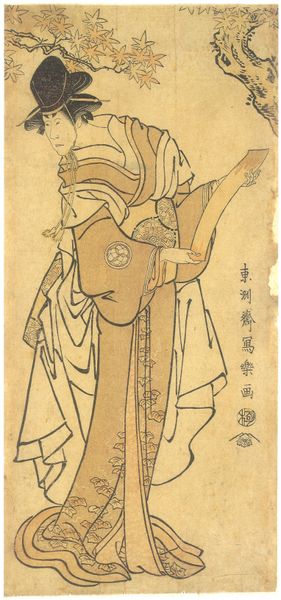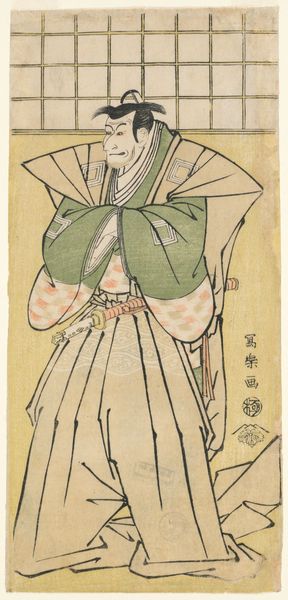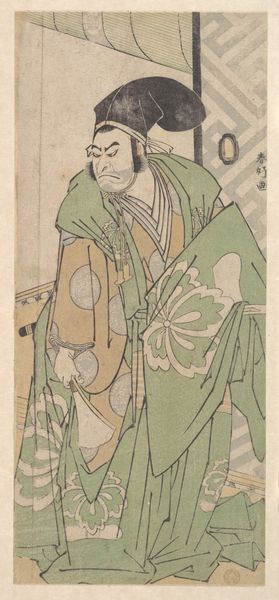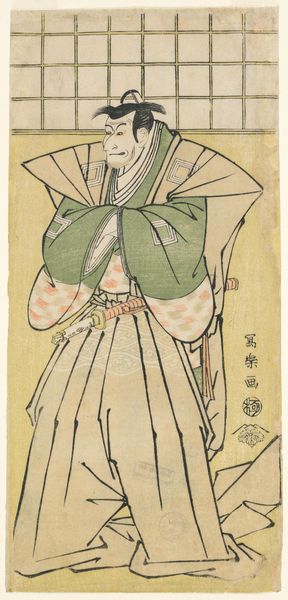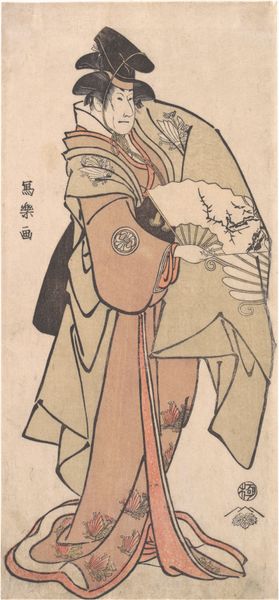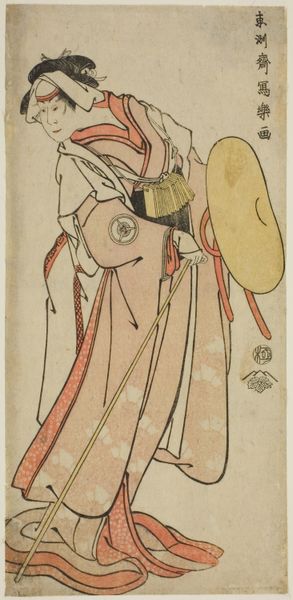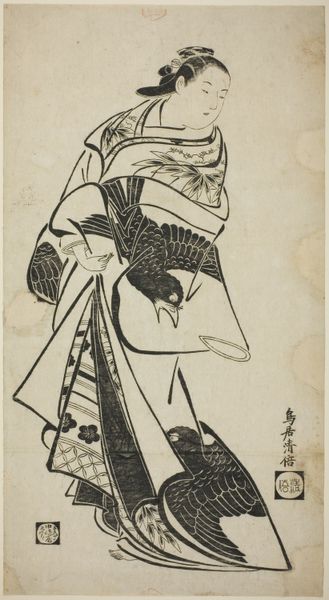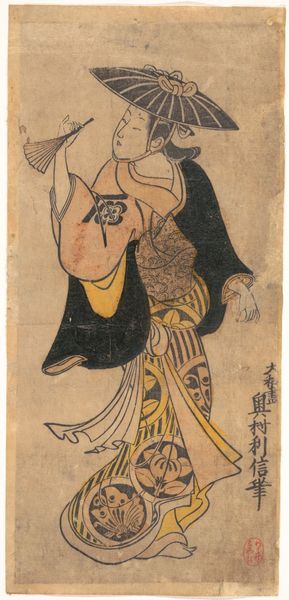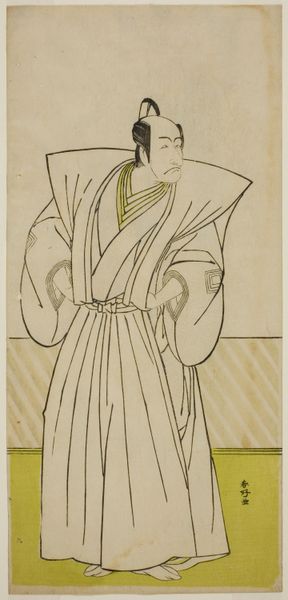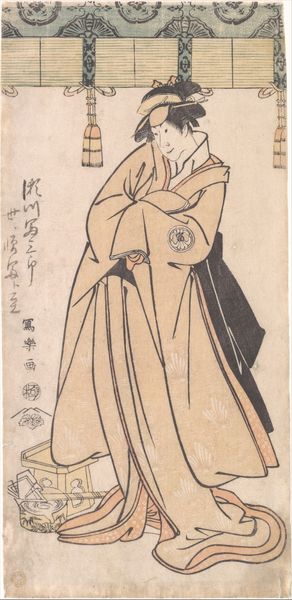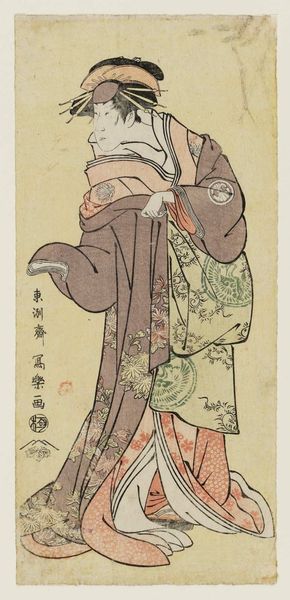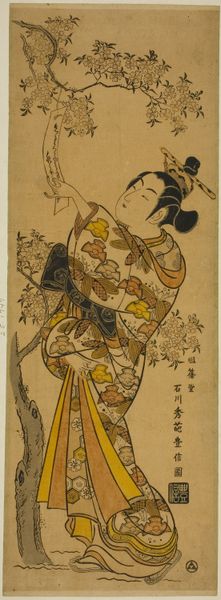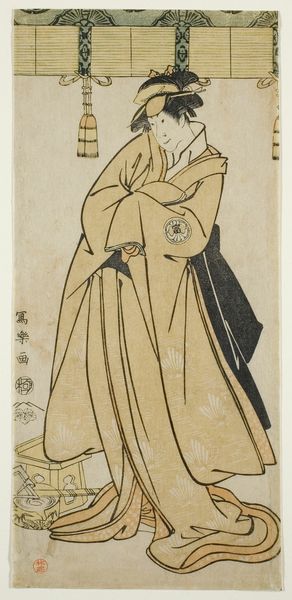
Iwai Hanshirō IV as Chihaya, the younger sister of the Shintō priest Kenkō 1795
0:00
0:00
print, woodblock-print
#
portrait
# print
#
asian-art
#
ukiyo-e
#
woodblock-print
#
genre-painting
Copyright: Public domain
Tōshūsai Sharaku created this woodblock print of Iwai Hanshirō IV as Chihaya in Japan around 1794. It captures a Kabuki actor in character, a popular subject for Japanese printmakers. But let's consider the image's role beyond mere representation. Kabuki theater was hugely popular in urban centers like Edo (now Tokyo), drawing large audiences from different social classes. Prints like these, sold as affordable souvenirs, were an important part of the Kabuki experience, extending the theater's reach into people's homes and everyday lives. Notice the actor's stylized pose, costume, and makeup. These visual codes, along with the play's narrative, would have been instantly recognizable to contemporary viewers. The print, therefore, acts as a form of social currency, connecting people through shared cultural knowledge. To understand this print fully, we need to delve into the history of Kabuki, the social structure of Edo-period Japan, and the development of the commercial print market. By consulting playbills, theater reviews, and social commentaries, we can begin to reconstruct the rich cultural context in which this image was created and consumed.
Comments
No comments
Be the first to comment and join the conversation on the ultimate creative platform.
